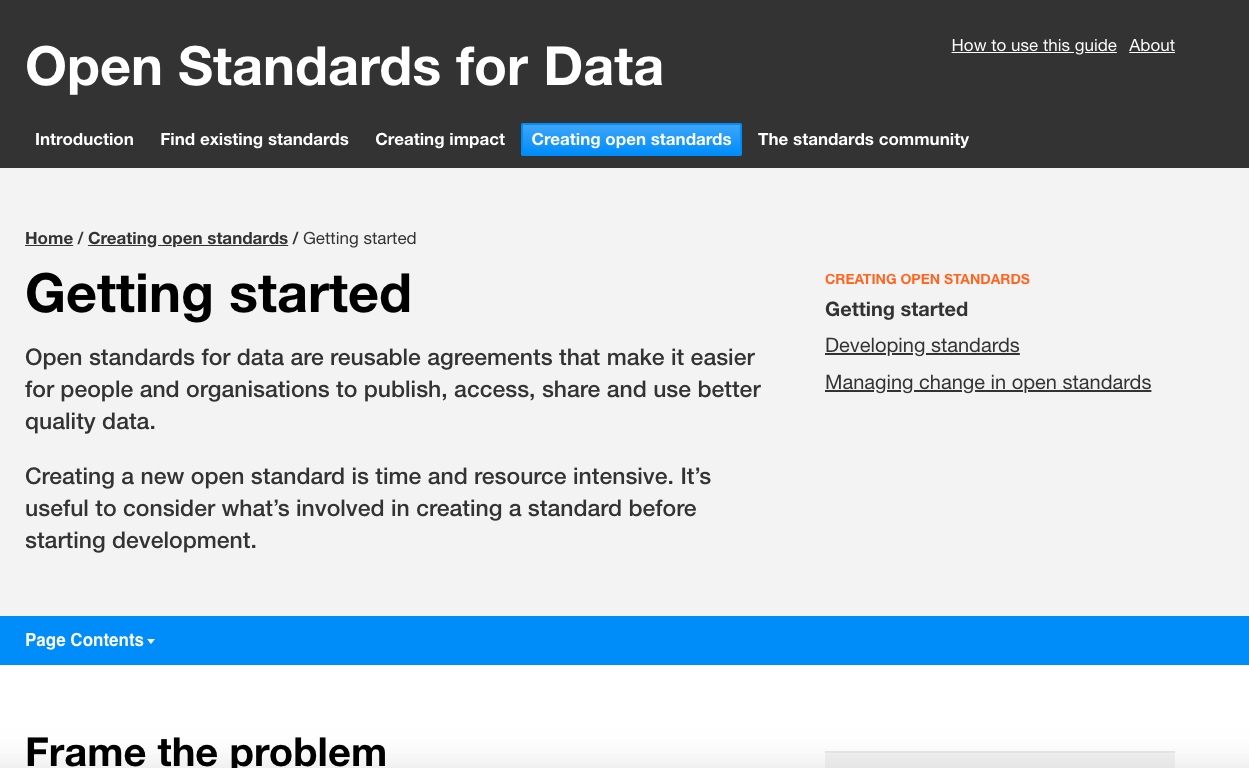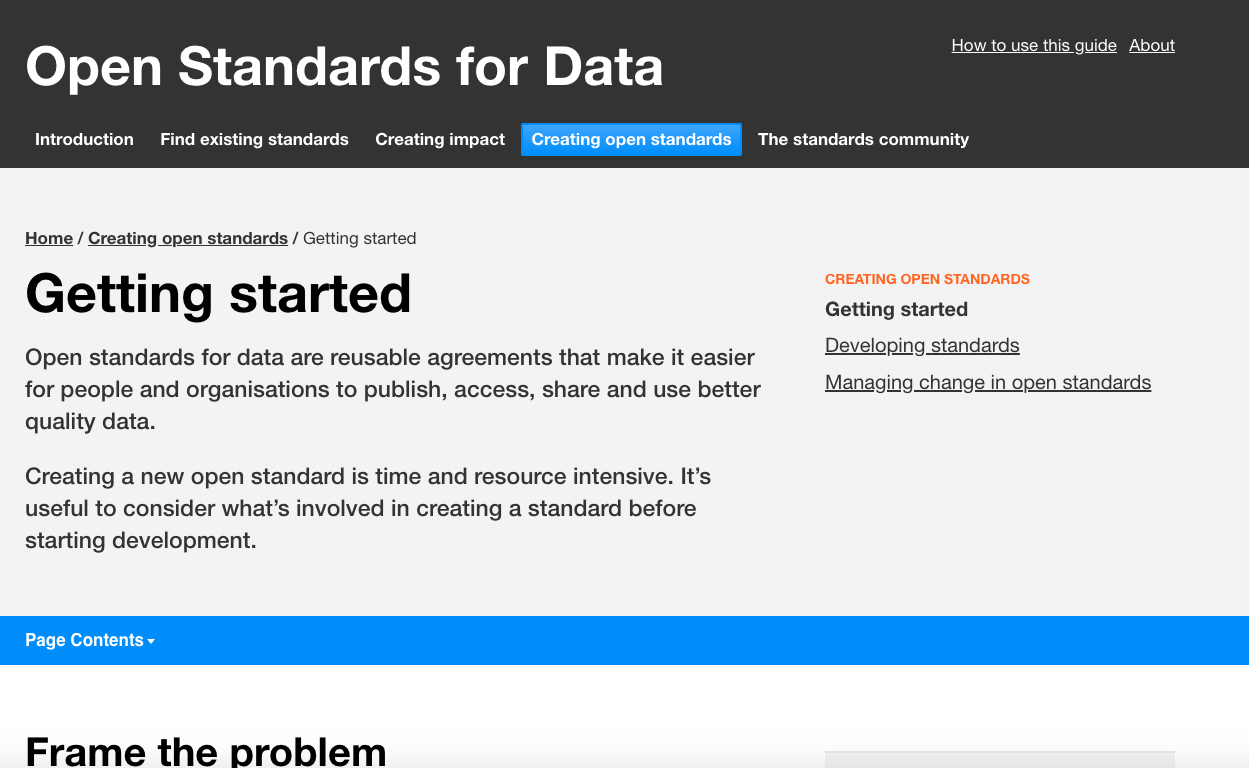This wonderful guide to standardizing data and getting to open data can help you walk through a new data project. The Open Data Institute published it in 2018 — mainly out of the UK.
It helps you make sure that you know what problem you are solving, and then starting to develop, refine, and manage data standards:
Frame the problem
Before you create a new open standard, you must understand the problem the standard will solve or need it fulfils.
Framing the problem means being clear about the problems currently being experienced, the benefits an open standard will deliver, who will use it, who will be affected by it, and why it is the right solution.
Open standards for data are most useful when many potential users work together to support the production and use of data in repeatable and reusable ways.
Start by commissioning a proof of concept to explore options, or work through a discovery phase to investigate the problem and potential solutions. The solutions may include using or extending an existing standard.
Framing the problem will mean engaging with people and organisations who have the same problem or existing open standard communities. Engage early and continue through developing or adopting an open standard. When adopting an existing open standard, engagement can lead to new relationships and improved community support. When creating a new open standard, engagement can significantly impact the success of your open standard by helping to build your standard’s community.
Identify the type of open standard that will deliver the most benefits, or what features might be combined from each.
We identified three types of open standards for data that can be used to:
- share vocabularies and language using common models, attributes and definitions, with outputs like: registers, taxonomies, vocabularies and ontologies
- exchange data within and between organisations and systems using common formats and shared rules, with outputs like: specifications, schemas and templates
- provide guidance and recommendations for sharing better quality data, understanding processes and information flow, with outputs like: models, protocols, and guides

